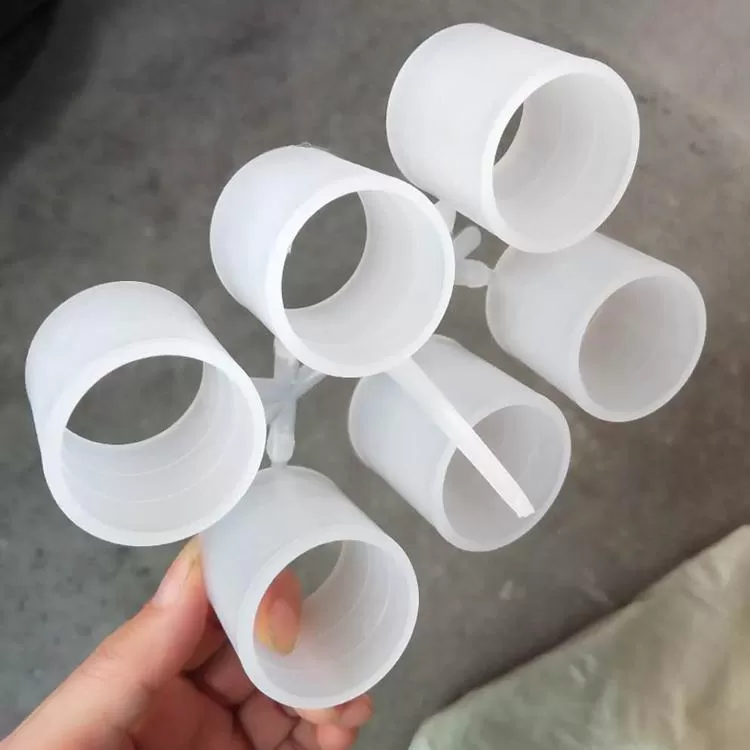Raschig ring is an annular packing with a specific structure, which plays an important role in mass transfer equipment in the fields of chemical industry, petroleum, environmental protection, etc. Its function and function and principle are mainly reflected in the structure and characteristics
First, the basic structure and characteristics of Raschig ring
· Structure: Raschig ring is a hollow cylinder with equal outer diameter and height, generally made of ceramic, metal or plastic materials. Its surface is smooth and the structure is simple.· Characteristics: It has a certain specific surface area and porosity, and can provide a contact interface for gas-liquid two-phase or liquid-liquid two-phase.

2. Core functions and functions
(1) Provide mass transfer interface and promote material exchange
· Functional principle: In equipment such as packing towers, liquid flows along the surface of the Raschig ring to form a liquid film, gas or another phase fluid flows through the gap of the packing, and the gas-liquid (or liquid-liquid) two phases are fully contacted on the surface and void of the ring to achieve mass transfer (such as absorption, distillation, extraction, etc.).· Application scenarios:
· In gas absorption, specific components in the mixed gas can be absorbed (such as absorbing carbon dioxide in the exhaust gas with sodium hydroxide solution).
· In the distillation process, the separation of components is realized through the contact of the gas-liquid two phases on the surface of the Raschig ring (such as distillation and purification of ethanol-water mixture).
(2) Increase the degree of fluid turbulence and strengthen the mass transfer efficiency
· Functional principle: When the fluid passes through the gap of the Raschie ring, the flow direction and speed change, resulting in a turbulent effect, reducing the boundary layer resistance of the gas-liquid two phases, thereby accelerating the diffusion and transfer rate of the material.· Effect: Compared with the empty tower without filler, the use of the Raschie ring can significantly improve the mass transfer efficiency and reduce the volume and energy consumption of the equipment.
(3) Uniform distribution of fluid to optimize the operation stability
· Liquid distribution: The accumulation structure of the Raschie ring allows the liquid from top to bottom to be evenly distributed in the packing layer, avoiding local liquid flow concentration or the formation of dry areas, and ensuring the uniformity of mass transfer throughout the column section.· Gas distribution: When the gas passes through the gap of the Raschig ring, it can also be evenly dispersed, reducing the phenomenon of air flow deflection or trench flow, and making the operation process more stable.
3. Application field and specific scenarios
FieldSpecific applications
Chemical production
For gas washing towers in synthetic ammonia production, fractionation towers in petroleum refining, to achieve gas purification or component separation.
Environmental protection
Scrubber towers in waste gas treatment (such as desulfurization, denitrification), aeration towers in wastewater treatment (contact with oxidizing pollutants through gas and liquid).
Pharmaceutical and food
Solvent recovery, distillation purification (such as separation and purification of pharmaceutical intermediates), and alcohol distillation in the food industry.
4. Advantages, disadvantages and limitations
· Advantages:· Simple structure, low cost, and convenient manufacturing.
· Good chemical stability, ceramic, metal or plastic materials can be selected according to the medium.
· Disadvantages:
· Mass transfer efficiency is relatively low (compared with modern high-efficiency fillers such as Bauer rings and step rings), due to smooth surface and limited porosity, it is easy to produce liquid trench flow and gas deflection.
· Resistance is large, and energy consumption is high when dealing with large flow fluids.
5. Comparison with other fillers (take Bauer ring as an example)
Packing typeStructural difference
Mass transfer efficiency
Resistance
Application scenario
Raschie ring
Solid ring, smooth surface
Lower
Larger
Traditional small equipment or low efficiency requirements Scenario
Bauer ring
Ring wall opening, surface roughness increased
Higher
Smaller
Medium and large industrial equipment, high efficiency requirements

